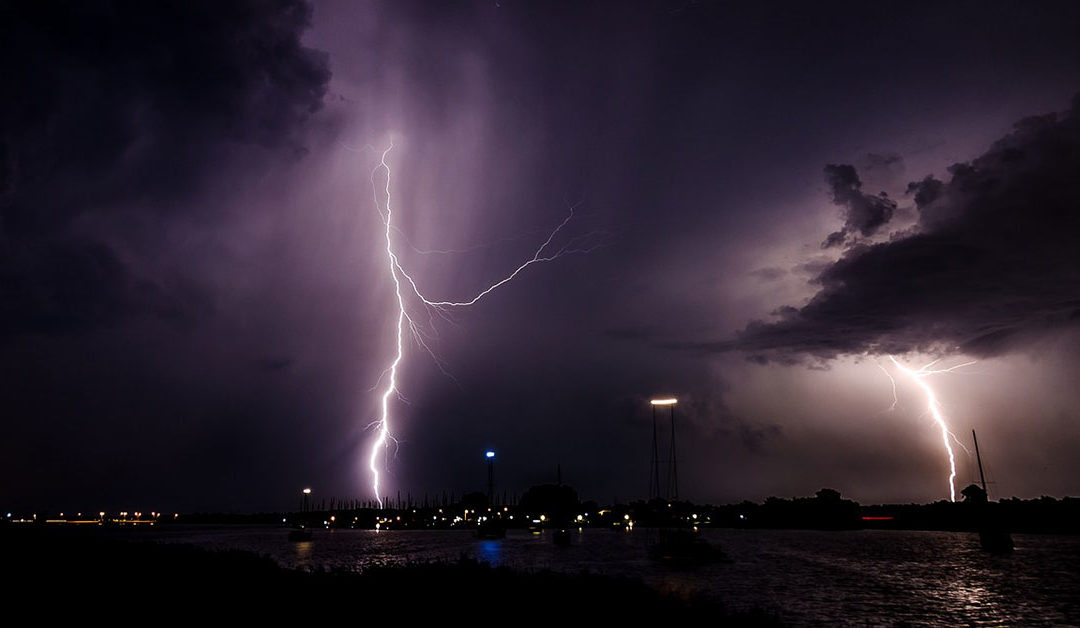Lightning is a huge factor to consider when analyzing the safety at your marina. You want to make sure a GFCI breaker is hooked up properly, and you also want to be aware of your surroundings. Being aware of Florida’s unpredictable weather is perhaps the most important aspect of being a boater. Dockside Power located near Hollywood, Florida provides services to the gorgeous marinas all throughout South Florida. We want our fellow boaters to be aware of all the hazards associated with boating in treacherous Florida weather and how they can stay safe. Becoming aware of signs a storm is near is just one of the few ways you can remain alert. Here are a few more safety factors to consider while you are out at your marina:
Check the Weather First
Chances are, you have planned your boating venture days, if not weeks, in advance. It may seem tedious, but it important to check weather in your area daily in order to ensure you will be safe at sea. Make sure you have a backup plan if there is any indication of bad weather. However, if there is even a slight chance for a thunderstorm, it is best to stay at home for the day. Knowing where other marina or harbors are located in case of emergencies is also valuable information. Apps such as AccuWeather are great sources for checking weather predictions as well as durations.
Lightning Safety by OSHA
OSHA requires that all outdoor workers have a plan set in motion in case of a storm. This natural occurrence is often an overlooked hazard that outdoor resources (such as marinas) need to take into consideration. In the United States, there are approximately twenty to twenty-five million strikes every year! Of all of those, about three hundred people are hit every year, with seventy percent of fatalities occurring in June, July, and August. Requirements dictate that workers should go indoors when lightning is six miles or less away. Boaters should follow these same guidelines.
Listen For Thunder
The sound of thunder is a sure indication that a storm is on the way. While it is typical in Florida to see a storm on the east and bright, sunny skies to the west, it is still important to remain vigilant. OSHA suggests that those outdoors start seeking immediate shelter once they hear thunder. The saying, “If thunder roars, go indoors!” is a good rule of thumb. You should also remain indoors for a minimum of thirty minutes after you last hear thunder. Many victims are hit by a bolt when they are under the illusion that a storm has passed, and they immediately go back outside. Waiting thirty minutes is all it takes to guarantee your safety.
Reduce Your Risks of a Strike
If weather looks fickle, and you decide to hop aboard your vessel for the day, there are ways you can reduce your risks of a strike while out on the water. Before setting sail, make sure the marina’s GFCI breaker is up and running. These breakers cut off all power supply on your boat to help reduce chances of electric shocks. If you are caught in a storm while out at sea, stay away from the top of your boat, as bolts usually hit at the highest point. Put on a life jacket and seek shelter where you can until the storm passes. Also be sure to turn off any and all power sources to reduce your risks of a strike or electric shock.
Contact Dockside Power near Hollywood for any more outdoor safety concerns or questions regarding a marina GFCI breaker.

